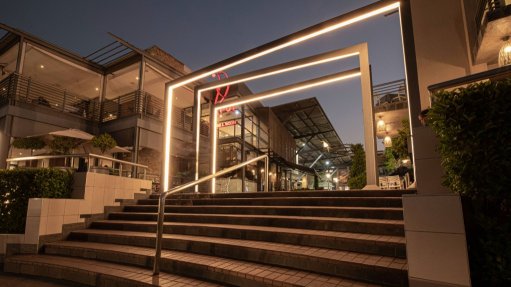Rwanda’s rebirth
The 100-day period from April 7 to July 15, 1994, will forever be etched on the memory of Rwandans and indeed the rest of humanity. That’s when armed militia from the majority Hutu ethnic group went on a rampage, killing an estimated one-million of their compatriots – mostly Tutsis.
The backstory to this pogrom is that in 1990 a rebel group composed mostly of Tutsi refugees invaded Rwanda from their bases in neighbouring Uganda, sparking the Rwandan Civil War. Over the next three years, neither the invaders nor government forces were able to gain a decisive advantage. To bring the war to an end, the Rwandan government, led by Juvénal Habyarimana, a Hutu, signed an accord with the invaders in August 1993.
The catalyst for the genocide was Habyarimana’s assassination on April 6, 1994, which created a power vacuum and ended the peace accord. Genocidal killings began the very next day when Hutu soldiers, police and militia went on a spree of revenge murders against those who happened to be Tutsis. Moderate Hutus who tried to protect the Tutsi, an ethnic minority in Rwanda, were not spared.
The attacks were fuelled by vicious anti-Tutsi propaganda broadcast on radio and television. They only ended when the rebels took Kigali, the capital city.
Following the conflict, the country and its infrastructure, civil services and societal structures were devastated. The economy and living conditions, too, took a big knock, with per capita gross domestic product (GDP), which had been declining since the mid-1980s, plunging by 50% in 1994 to $146.
Thirty years on, the country has exited fragility, having emerged as a frontier market. Coined by former World Bank official Farida Khambata, the term refers to a country that is more established than the least-developed countries but still less established than the emerging markets because it is too small, carries too much inherent risk or is too illiquid to be considered an emerging market. Frontier markets are, however, still investable and are considered desirable by investors seeking substantial long-term returns because they have the potential to become more stable and established over the course of decades.
From a measly $752-million in 1994, Rwanda’s GDP topped an estimated $35- billion in 2023, having accelerated by about 7.6% year-on-year. This level of momentum is expected to be maintained for at least the next few years, with the World Bank forecasting average growth of 7.2% to 2026.
The expected GDP growth rate of 7.2% this year is the fourth-highest in Africa, after Niger’s 11.2%, Senegal’s 8.2% and Libya’s 7.9%, according to the African Development Bank.
Other indicators of progress over the past three decades are much improved life expectancy of 67 years, significantly higher than for countries at a similar GDP level; a child mortality rate that is one-quarter of the 2000 figure; and a reduction in maternal mortality to a fifth of what it was in 2000. Moreover, the poverty rate is now at 38%.
On April 7, Rwanda kicked off a week of events to remember the horrible 100 days in 1994. At the event, President Paul Kagame summarised the period since the genocide succinctly when he said: “Our journey has been long and tough. Rwanda was completely humbled by the magnitude of our loss, and the lessons we have learned are engraved in our blood. “But the tremendous progress of our country is plain to see, and it is the result of the choices we made together to resurrect our nation.”
Rwanda may have undergone an amazing rebirth – courtesy of sound policies and the generosity of external donors – but it does need to close some deficits, especially on the political front. Kagame doesn’t seem to brook opposition and, as South Africans would know, a handful of his countrymen who had fallen out with him and taken refuge in this country were allegedly abducted or murdered by the Rwandan secret service. The latest incident was the assassination of Seif Bamporiki, a top official of the Rwanda National Congress, in Cape Town in February 2021.
Then there is the matter of Kagame’s being President perpetually – since 2000. In 2015, he presided over controversial constitutional amendments that allow him to run for more terms and stay in power until 2034. Real democrats don’t behave that way.
Article Enquiry
Email Article
Save Article
Feedback
To advertise email advertising@creamermedia.co.za or click here
Comments
Press Office
Announcements
What's On
Subscribe to improve your user experience...
Option 1 (equivalent of R125 a month):
Receive a weekly copy of Creamer Media's Engineering News & Mining Weekly magazine
(print copy for those in South Africa and e-magazine for those outside of South Africa)
Receive daily email newsletters
Access to full search results
Access archive of magazine back copies
Access to Projects in Progress
Access to ONE Research Report of your choice in PDF format
Option 2 (equivalent of R375 a month):
All benefits from Option 1
PLUS
Access to Creamer Media's Research Channel Africa for ALL Research Reports, in PDF format, on various industrial and mining sectors
including Electricity; Water; Energy Transition; Hydrogen; Roads, Rail and Ports; Coal; Gold; Platinum; Battery Metals; etc.
Already a subscriber?
Forgotten your password?
Receive weekly copy of Creamer Media's Engineering News & Mining Weekly magazine (print copy for those in South Africa and e-magazine for those outside of South Africa)
➕
Recieve daily email newsletters
➕
Access to full search results
➕
Access archive of magazine back copies
➕
Access to Projects in Progress
➕
Access to ONE Research Report of your choice in PDF format
RESEARCH CHANNEL AFRICA
R4500 (equivalent of R375 a month)
SUBSCRIBEAll benefits from Option 1
➕
Access to Creamer Media's Research Channel Africa for ALL Research Reports on various industrial and mining sectors, in PDF format, including on:
Electricity
➕
Water
➕
Energy Transition
➕
Hydrogen
➕
Roads, Rail and Ports
➕
Coal
➕
Gold
➕
Platinum
➕
Battery Metals
➕
etc.
Receive all benefits from Option 1 or Option 2 delivered to numerous people at your company
➕
Multiple User names and Passwords for simultaneous log-ins
➕
Intranet integration access to all in your organisation


















